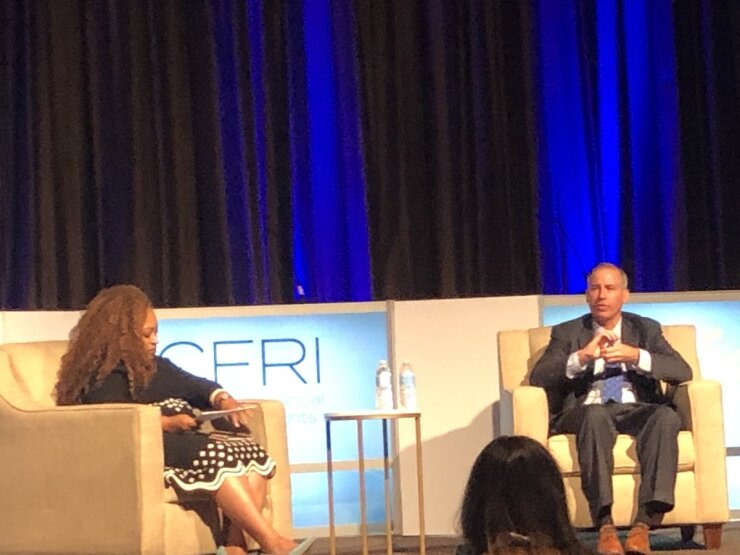The Financial Accounting Standards Board approved an accounting standards update Wednesday to help companies make the transition from the London Interbank Offered Rate, or LIBOR, to newer reference rates like the Secured Overnight Financing Rate, or SOFR.
Regulators have been pressing banks and other financial institutions to make the transition from LIBOR to SOFR after a scandal erupted in 2012 exposing how traders at several major banks had been routinely manipulating LIBOR for years to increase their profits. The reference rates are what banks use to make short-term loans to each other and help determine the basis on which they make loans to their customers. Trillions of dollars in loans, derivatives and other financial contracts make reference to LIBOR. The global capital markets are expected to move away from LIBOR and other interbank offered rates toward rates like SOFR that are considered to be more observable or transaction-based and less susceptible to manipulation.
FASB started a project last year to address the potential accounting challenges expected to arise from the transition. FASB proposed an
“After weighing significant input and feedback, the FASB has approved finalizing guidance to provide stakeholders with guidance they need to ease the process of migrating away from LIBOR to new reference rates,” said FASB chairman Russell Golden in a statement. “The guidance will be issued early next year and will address stakeholders’ operational challenges, help simplify the migration process, and reduce related costs.”

For a contract that meets certain criteria, a change in its reference interest rate would be accounted for as a continuation of that contract, as opposed to the creation of a new contract. The provision would apply to loans, debt, leases and other arrangements. A company or other organization would be allowed to preserve its hedge accounting when updating its hedging strategies in response to reference rate reform.
The guidance will apply only to contracts or hedge accounting relationships that reference LIBOR or another reference rate that’s expected to be discontinued due to reference rate reform.
The final accounting standards update aims to help accountants and other stakeholders during the global market-wide reference rate transition period. That means the guidance is only going to be in effect for a limited time. It will be effective when the final guidance is issued in early 2020 and would not apply to contract modifications made and hedging relationships entered or evaluated after Dec. 31, 2022. More information on the project can be found at
The Securities and Exchange Commission has also been working with FASB on the LIBOR to SOFR transition. “LIBOR continues to be a huge area of focus for us,” said SEC chief accountant Sagar Teotia, during a speech Tuesday at the Financial Executives International’s Current Financial Reporting Insights conference in New York. “Four different divisions and offices of the SEC a few months ago did a statement [on the LIBOR transition]. I would encourage everybody to read that. I think it’s really helpful in terms of getting different people’s perspectives. We wanted to be early on it and proactive. I think the FASB as well has been very proactive on LIBOR, so a tip of the cap in that area. They’re seeking questions, and people are getting questions to them, and they’re moving things forward. We’re certainly monitoring that, but we like the cadence they’re going with."
"Similarly, we’ve got a very good consultation in-house right now that we’re working on that I think could impact a meaningful amount of people," Teotia continued. "The fact that we’re getting questions is terrific. The more questions that we get and the earlier we get them, the better off they are. I would certainly encourage everybody to keep focused on LIBOR. We will stay focused. You will continue to hear us talk about this a lot, whether it’s at forums like this or formal public speeches, but we’ve been collectively — the FASB and OCA [the SEC’s Office of the Chief Accountant] — we’ve tried to be very proactive in this space.”





